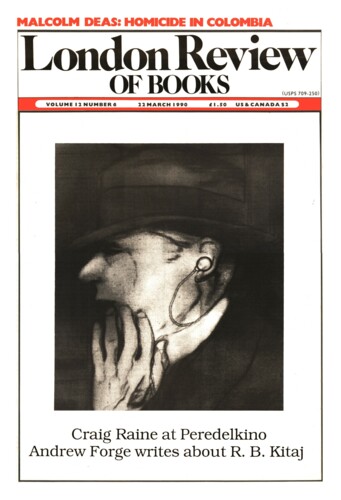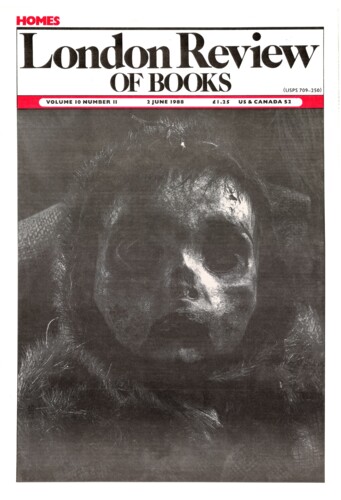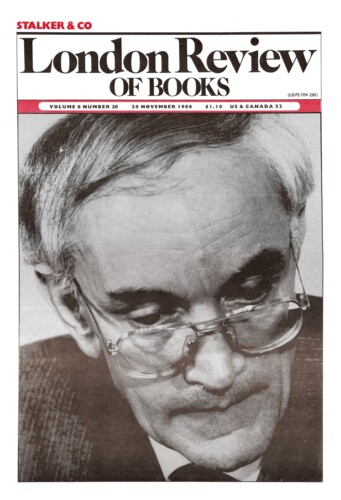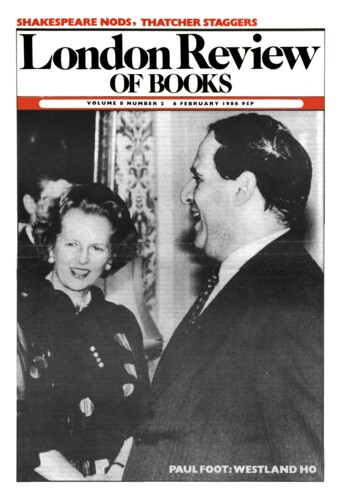Malcolm Deas
Malcolm Deas is a historian of Latin America, and particularly of Colombia, and an emeritus fellow at St Anthony’s College, Oxford, where he taught modern history for almost five decades. He was among the founding staff of the Latin American Centre in Oxford and for a number of years its director.
Homicide in Colombia
Malcolm Deas, 22 March 1990
Around 1890 Colombia was governed by Dr Rafael Nuñez. This ravaged old intellectual, a late convert from the fleshpots of Liverpool – he had been Consul there – and liberalism, exerted his influence from a breezy summer-house on the beach near Cartagena, and left the day-to-day business of government in Bogota to the ultramontane grammarian, schoolteacher, Virgil-translator and polymath Miguel Antonio Caro, who in the course of a long life, legend has it, not only never bothered to see the sea, which was then many days distant, but even drew the line at going to see the River Magdalena, close enough for someone of even the feeblest geographical curiosity.
Spectacle of the Rats and Owls
Malcolm Deas, 2 June 1988
‘Fidel Castro, alas’ one would have to answer if asked what 20th-century Latin American had cut the largest figure in the world. The best short account of the cultural reasons for lamentation is G. Cabrera Infante’s ‘Bites from the Bearded Crocodile’ (LRB, 4-17 June 1981). The economic and social reasons for being less than enthusiastic are set out in the leaden pages of Jorge Dominguez’s Cuba: Order and Revolution of 1970: it is worth bearing in mind that the present state of the Cuban economy can only be sustained by the receipt of something like half of all Soviet aid to the so-called Third World. And now there is Armando Valladares’s Against All Hope, a distinguished prison memoir.
Argentine Adam
Malcolm Deas, 20 November 1986
Most recent books in English on Argentine history are on economic history. On looking them over, readers who are not economic historians will probably reach the same conclusion as did J.O.P. Bland (better-known as the unwitting partner of the forger Sir Edmund Backhouse, the ‘Hermit of Peking’) after conscientiously preparing himself for a visit to the River Plate in 1916: ‘From the library catalogue point of view, the subject might well seem to have been exhausted … Yet how few there be amongst all these works (as some of us know to our cost) that properly and worthily inculcate the profitable exercise of travel … Say what you will, the great majority of them are so dreadfully infected with stodgy commercialism, so monumentally useful, that their general effect upon the mind (unless it be the mind of a bagman) can only be compared to a surfeit of suet pudding.’
Read, rattle and roll
Malcolm Deas, 6 February 1986
I like to regard people both making it and smoking it not only as a sort of friendship, but as a vast domain of democracy wherein we find gathered people of every class and race and creed, having in pipe or plug or cigar or cigarette, a bond of sympathetic understanding and a contact of common interest and good fellowship. I like to contemplate the business of producing and the pleasure of consuming this exalted plant as really a realm peopled by congenial spirits and ruled only by those kindlier human emotions which the smoke of these fragrant leaves kindles in the heart of man …
Read anywhere with the London Review of Books app, available now from the App Store for Apple devices, Google Play for Android devices and Amazon for your Kindle Fire.
Sign up to our newsletter
For highlights from the latest issue, our archive and the blog, as well as news, events and exclusive promotions.




